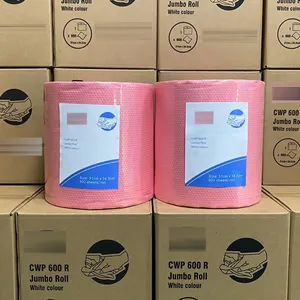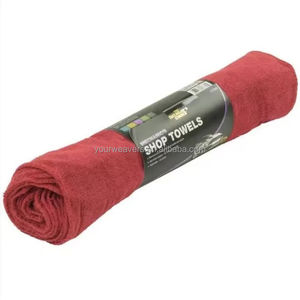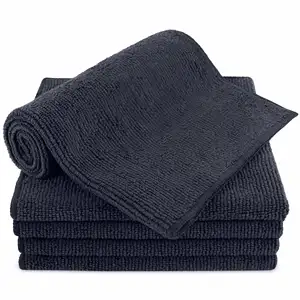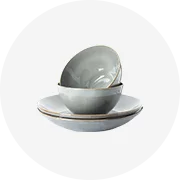
Free sample custom color heavy duty wipes cleaning industrial nonwovens blue red hand cloth roll shop towels

Mechanic Red Shop Towels Cleaning Cloths Workshop Rags 26g Car Detailing Towel for Shop Home Auto Garage Multipurpose

















Choosing the right cleaning tools can significantly enhance your efficiency, cost-effectiveness, and environmental sustainability. This guide offers an in-depth comparison between shop towels and traditional rags, two prevalent cleaning tools. By understanding their unique features, uses, and selection factors, you can make an informed decision that best suits your specific needs, whether you're a mechanic dealing with stubborn grease or a homeowner managing everyday spills.
Shop towels and traditional rags, while often used interchangeably, possess distinct characteristics. Shop towels are engineered to resist solvents and degreasers, making them ideal for mechanics. Traditional rags, crafted from fabric remnants, can serve as a cost-effective alternative to wipers. The choice between these two depends on the task, work environment, and job-specific needs. Selecting the right product boosts efficiency and minimizes waste.
Shop towels are indispensable in various industries due to their durability and resistance to solvents and degreasers. They are typically delivered on a regular schedule for convenience, and used towels are collected and laundered for reuse. They are commonly used for tasks such as absorbing spills, removing oil, grease, or fingerprints from smooth surfaces, scrubbing away dirt, stains, or adhesives, and sanitizing surfaces by eliminating harmful germs. Their longevity varies, with some lasting from a few seconds to several months or even years.
Traditional rags, also known as rag rugs, are crafted from recycled materials like old clothes, linen, and bedsheets. This practice was prevalent among the less affluent in the 19th century, as textiles were labor-intensive to produce and were often reused until they disintegrated. Rag rugs were used as floor mats, door mats, and even bed covers. The creation of rag rugs was considered a low-status craft, often associated with poverty.
Shop towels and traditional rags can influence manufacturing processes differently. Cloth-based rags and shop towels can leave behind lint, dirt, and debris, potentially compromising the manufacturing process. In contrast, disposable wipes like industrial shop towels are absorbent, expedite equipment cleaning, and can reduce machine downtime. Research indicates that workers using laundered shop towels may be exposed to high levels of harmful substances, making disposable shop towels a more reliable and efficient choice.
Shop towels are made of 100% pure cotton, ensuring long-term usage. They can be used multiple times before requiring a wash, and even after washing, they retain their utility. Cotton also provides a soft touch while cleaning up messes. Shop towels are robust and durable, perfect for tackling various messes in different work environments. They are designed to be sturdy, capable of handling heavy-duty cleaning tasks while maintaining their quality and absorbency.
Shop towels generally outperform traditional rags in terms of absorbency and cleaning efficiency. They're larger, thicker, and can be wrung out for immediate reuse, making them highly efficient for cleaning tasks. Unlike disposable alternatives, a shop towel can be used several times before it loses its ability to absorb dirt and moisture. This durability also contributes to their cleaning efficiency, as they can withstand rigorous use without falling apart.
When comparing cost-effectiveness, shop towels and traditional rags present different scenarios. Buying shop towels in bulk may seem economical, but the cost can range significantly, plus disposal costs and environmental liabilities. Conversely, a towel cleaning service costs less per towel, with additional service fees. Moreover, you'll need 2-5 times more single-use rags to do the same job as rental shop towels. Thus, a towel cleaning service can result in significant savings, typically up to 60%, and is more environmentally friendly.
There's a common belief that reusing rags or shop towels is less wasteful than disposable wipes. However, a study by an environmental and risk science consulting firm found that laundered shop towels may expose workers to high levels of various metals. This suggests that the environmental impact of using shop towels could be more significant than initially perceived, especially when considering the potential contamination of the environment through exposure to these metals.
Research shows that laundered shop towels may expose workers to heavy metals, even after washing. These tiny metal particles, invisible to the naked eye, can be unknowingly transferred from hands to mouths, leading to ingestion. This exposure can exceed health-based guidelines set by agencies like the U.S. EPA and ATSDR. For instance, a worker may ingest up to 3,600 times more lead daily than recommended by CalEPA. This excessive metal exposure over time may present a health concern.
Choosing the right wiper, towel, or rag for your needs is crucial to avoid wastage and enhance efficiency. Consider the tasks being performed, the work environment, and the type of wiper, towel, or rag needed. For instance, mechanics require a product that can remove dirt and grime, while custodians need an absorbent product that won’t leave streaks. In a large production area, a big box of rags may work well, while service crews may benefit from wipers in pop-up boxes or on rolls. Understanding the construction of wipers, towels, and rags can also help manage expectations.
In an industrial setting, shop towels are used for a variety of tasks, from cleaning spills to wiping sweat. Rented shop towels offer convenience but lack customization. Purchased shop towels provide more control over features like high absorption or lint-free cleaning, but require self-laundering. Disposable towels, while custom-ordered for specific tasks, lead to significant waste and potential disposal issues with hazardous solvents. Each option has its benefits and drawbacks, and the choice depends on your specific industrial needs.
For household cleaning, shop towels can be a versatile and effective option. They can replace traditional cleaning tools like sponges, scrubbers, and microfiber cloths. Shop towels are known for their durability and absorbency, making them ideal for tackling kitchen grime, soap scum, and spills. They can also be used for general cleaning in the bathroom or kitchen, and even for cleaning appliances. Unlike traditional rags, shop towels do not leave streaks behind and are easy to clean and reuse, making them a cost-effective and environmentally friendly choice for household cleaning.
In conclusion, the choice between shop towels and traditional rags largely depends on the specific needs of the task, the work environment, and considerations around cost-effectiveness, environmental impact, and health safety. Shop towels, known for their durability and absorbency, are often the go-to choice for heavy-duty tasks in industrial settings and can also be a versatile tool for household cleaning. Traditional rags, on the other hand, offer a low-cost alternative with a rich history. However, they may not provide the same level of efficiency and safety as shop towels. Therefore, understanding the pros and cons of each can help you make a smart buying decision that enhances efficiency, reduces waste, and potentially saves money.